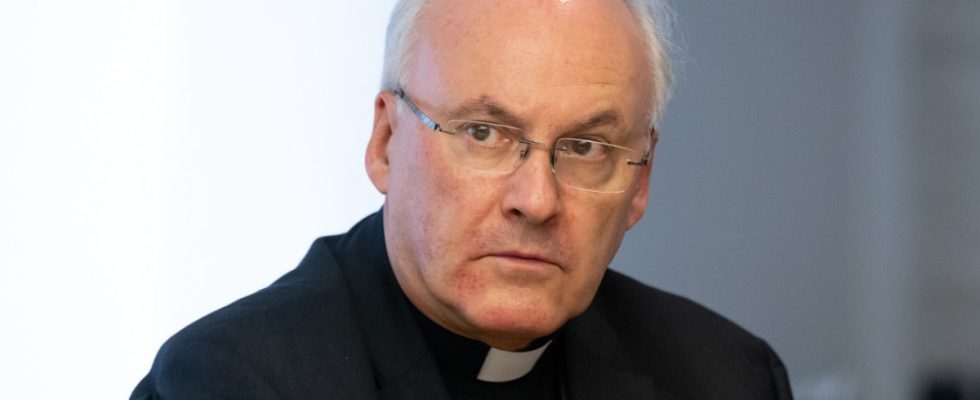Imagine a person – man or woman – who is outstanding. She teaches and researches at the university, she is academically excellent, understands her subject, theological social ethics, in its entirety and is applying for the corresponding chair at the University of Regensburg. With success. The faculty wants them, the university management wants them and then? Nothing happened for almost three years because one man didn’t want it: Regensburg Bishop Rudolf Voderholzer.
There is one thing the person is obviously not: a priest. And Voderholzer mainly wants to see such people in the chairs of the theological faculty, as a diocese spokesman told the blog Communion said. Like every local bishop, Voderholzer has a say in the appointment, the “Nihil Obstat”, a kind of clearance test. But Voderholzer doesn’t check. According to the spokesman, his position since 2014 has been that he “can only agree to the appointment of priests.” This is one of the reasons why only six of the 14 chairs in Regensburg are occupied; in three cases, according to the university management, the appointment procedures have been completed and cannot be completed due to the lack of the bishop’s consent.
Voderholzer is “blackmailing the faculty,” as the working group of social ethicists sees it in a recently published statement. Years of appointment procedures are an “unreasonable professional and private burden” for the applicants; they are at the expense of the students and continuous research, according to a statement from the Faculty Association, which speaks for all Catholic theological faculties. The bishop, on the other hand, refers to canon law.
So what is it like: Can a bishop decide who teaches at the university? The quick answer is: no. At least not in the form that the Bishop of Regensburg seems to practice. Government circles say that the “Nihil Obstat” should not be refused because there are too few priests teaching at the faculty. According to the Bavarian Concordat – a contract between state and church from 1924 – a local bishop is allowed to have a say. A complaint is possible if the doctrine or moral behavior speaks against a calling.
But Voderholzer doesn’t even start the exam. If you ask the diocese why, reference is made to an interview that the bishop gave to the Catholic news agency CNA. In it he quotes the Concordat, which states that the courses offered are primarily based on the priestly profession and should take church regulations into account. Opinions differ as to which church regulations apply.
Voderholzer refers to a text called “Ratio fundamentalis institutions sacerdotalis“. It states that “the majority of professors in a theological faculty must be priests, at least in the compulsory theological disciplines”. If you ask around among theologians, they point out that this statement refers to seminaries that are run solely by the church. But Germany is one of the few countries where priests are trained at state universities.
The number of academically excellent priests is limited
There is also an internal church regulation for this, the “Veritatis Gaudium”. Accordingly, “an appropriate number” of lecturers should be priests. In Regensburg, one of seven chairs is occupied by a priest and another by a deacon. Now is that appropriate? The bishop says no. But: Do universities even have to adhere to church regulations?
The Ministry of Science said that internal church regulations such as a quota of priests could be deviated from Communion with. What does apply, however, is the constitutional principle of selection of the best. This means that the university must select the best person, regardless of whether the candidate is a priest. If she is suspected of not doing so, lawsuits could follow.
According to Voderholzer, the university agreed in 2016 to ensure a priest quota. He also thinks that there are enough suitable priests. However, university circles say that the number of academically excellent priests is limited. The question remains what happens next.
Science Minister Markus Blume must end the blockade, demands the Social Ethics Working Group. Blume doesn’t say whether he plans to do that. He simply expressed his confidence that open questions could be clarified in discussions and that nothing would soon stand in the way of an appointment. And the bishop? Says he is ready for further discussions, but also refers to all the discussions that have already taken place. He wants more priests at the university, he has made that clear since 2014. It doesn’t sound like he plans to change his position.

